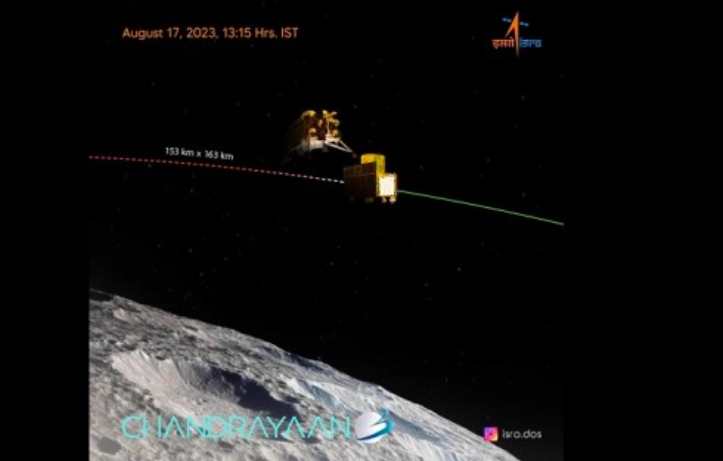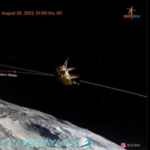Indian space agency on Thursday afternoon successfully detached the moon lander from the main spacecraft Chandrayaan-3.
The Chandrayaan-3 spacecraft comprises a propulsion module (weighing 2,148 kg), a lander (1,723.89 kg) and a rover (26 kg).
“Thanks for the ride, mate! said the Lander Module (LM). LM is successfully separated from the Propulsion Module (PM). LM is set to descend to a slightly lower orbit upon a deboosting planned for tomorrow around 1600 Hrs., IST,” Indian Space Research Organisation (ISRO) tweeted.
According to ISRO, the lander was separated from the propulsion module at an orbit of 153 km x 163 km around the moon.
Meanwhile, the Propulsion Module continues its journey in the current orbit for months/years, said ISRO.
“The SHAPE payload onboard it would perform spectroscopic study of the Earth’s atmosphere and measure the variations in polarization from the clouds on Earth – to accumulate signatures of Exoplanets that would qualify for our habitability! This payload is SHAPEd by U R Rao Satellite Centre/ISRO, Bengaluru,” ISRO added.
The main purpose of India’s third moon mission costing about Rs 600 crore is to land the lander softly on the moon.
The Chandrayaan-2 mission failed as the lander called ‘Vikram’ crashed on to the moon.
According to the ISRO, the lander is expected to make a soft-landing near the South Pole of the moon on August 23 at 5.47 p.m.
The lander will descend to the moon from a height of about 100 km from the moon’s surface.
The soft landing is a tricky issue as it involves a series of complex manoeuvres consisting of rough and fine braking.
Imaging of the landing site region prior to landing will be done for finding safe and hazard-free zones.
Subsequent to the soft landing, the six-wheeled rover will roll out and carry out experiments on the lunar surface for a period of one lunar day which is equal to 14 earth days.
The Chandrayaan-3 was put into orbit on July 14 in a copybook style by India’s heavy lift rocket LVM3.
The spacecraft completed orbiting around the earth and headed towards the moon on August 1.
On that day a successful perigee-firing performed at ISTRAC, the ISRO had injected the spacecraft into the translunar orbit.


